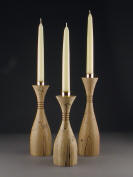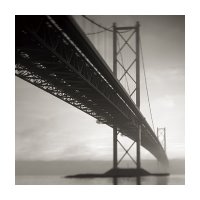The new in the old: Britain in the 21st Century


Travelling down to Birmingham the other day, I noticed signs on walls and in squares in towns and villages.
Near Wolverhampton, I noticed ‘Three Tuns Parade’, and along that parade, the sign over a restaurant, ‘Raj Tandoori’, while further along stores advertised DVDs, lap-top computers and the like.
In something I had written earlier, I had used the metaphorical expression, ‘cash points in alms houses’ to refer to this feature of modern Britain; the juxtaposition of the old and new. Looking at the people walking along the High Streets of England, you could easily come up with other expressions to mark incongruity – ‘skateboards and walking sticks’ indicating old and new in terms of our population, ‘Muslim and Christian’ in terms of our religious persuasions, ‘Indian and Pakistani’ in terms of our ethnic diversity.
Everything is constantly in a state of flux – the only constant in our changing world is change itself, but people don’t change, at least not as quickly as things around them do. A man walking his dog across a common will notice differences; he will notice changes in people’s clothing, with bright colours instead of the more traditional shades of rainwear, for example. He will notice breeds of dogs he doesn’t recognize, and he will notice things like extendable nylon dog leads rather than the short leather one he has always used to keep Rover from running after cats or other dogs.
In terms of the landscape of England, former industry, now defunct and gone, has left its mark, and new activity is leaving its own. England is criss-crossed with motorways, with their attendant fly-overs, bridges, sweeping exits and embankments, cuttings and roundabouts. These are invariably covered in short grass, growing wilder on embankments where it is more or less left to nature rather than to mechanized hedge and grass cutters.
Some species of bird and beast have inevitably suffered from this development, while others have flourished. Along the fringes of motorways can be seen hovering kestrels, and below, unseen to passing drivers, the prey of the ‘windhover’ – voles, mice and other small mammals.
But pollution also attends these strips of rapid movement, and pollution takes many forms. Invisible to the eye, polluted ‘air’ rises from innumerable exhaust pipes, and affects us in ways we still don’t fully understand.
Another form of pollution – more obvious than air pollution, is the pollution that can be heard – noise pollution. With the motorway encroaching more and more on our diminishing countryside, it is getting more and more difficult to find places where one cannot hear anything but the wind and the call of bird and beast.
The dawn chorus, such a delightful way of being awakened to a new day, is becoming snuffed out, to the rear, by this louder and more incessant roar of traffic hurtling north and south, east and west along our motorways.
We can live with this, well, we have to – what choice do we have? But there is a price, and, while being intangible, is nevertheless ubiquitous and ever present. If there is no place where you can enjoy peace and quiet, there is nowhere the mind can rest, nowhere you can be alone with your thoughts, nowhere you can marvel at God’s creation, its uniqueness, and its expansiveness.
Sitting reading early one Sunday morning, traditionally the quietest time in the week, I could still hear the roar of cars and lorries as they hurtled past, and although I couldn’t see them, they disturbed me. The constant roar takes away other, more subtle sounds I would have preferred to hear.
A woodpecker holding on to the bottom of a cylindrical ‘cage’ of nuts, suspended there by the gardener for that very reason – to feed the birds, and to allow him the sight, though not now the sound of their urgent pecking.
Now, the gentle gurgling of the river over the little weir, the cows in the meadow beyond, ruminating and lowing, birds singing, bees humming, and over it all, the gentle breeze stirring leaves and branches – all become submerged in the infernal, internal roar of the combustion engine, and rubber on tarmac.
Robert L. Fielding

1 Comments:
Hi Rob, reading this is a bit depressing. I know it's true what you say, as are the comparisons you make. It's a paradox that we have to create the city environment to be able to reproduce the wealth that, in turn, creates the problems (or, a lot of them) that you highlight! It then follows that the rich can afford to move to the country, while the poor tend to live in or on the city apron, thereby being denied the birdsong and tranquility their class once had. Progress? Who can say. One thing's for sure, the indefatigable situation moves on.
Post a Comment
Visit My Website<< Home